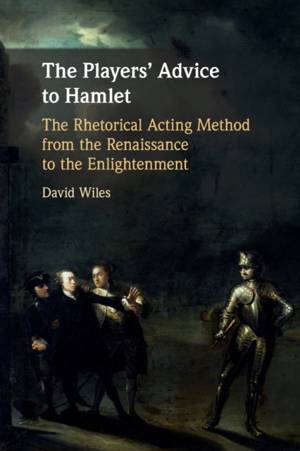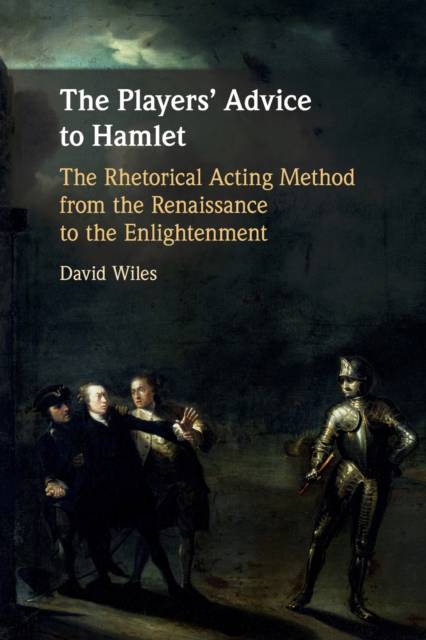
- Afhalen na 1 uur in een winkel met voorraad
- Gratis thuislevering in België vanaf € 30
- Ruim aanbod met 7 miljoen producten
- Afhalen na 1 uur in een winkel met voorraad
- Gratis thuislevering in België vanaf € 30
- Ruim aanbod met 7 miljoen producten
Zoeken
The Players' Advice to Hamlet
The Rhetorical Acting Method from the Renaissance to the Enlightenment
David Wiles
Paperback | Engels
€ 46,45
+ 92 punten
Uitvoering
Omschrijving
Hamlet is a characteristic intellectual more inclined to lecture actors about their craft than listen to them, and is a precursor of Enlightenment figures like Diderot and Lessing. This book is a quest for the voice of early professional actors, drawing on English, French and other European sources to distinguish the methods of professionals from the theories of intellectual amateurs. David Wiles challenges the orthodoxy that all serious discussion of acting began with Stanislavski, and outlines the comprehensive but fluid classical system of acting which was for some three hundred years its predecessor. He reveals premodern acting as a branch of rhetoric, which took from antiquity a vocabulary for conversations about the relationship of mind and body, inside and outside, voice and movement. Wiles demonstrates that Roman rhetoric provided the bones of both a resilient theatrical system and a physical art that retains its relevance for the post-Stanislavskian performer.
Specificaties
Betrokkenen
- Auteur(s):
- Uitgeverij:
Inhoud
- Aantal bladzijden:
- 382
- Taal:
- Engels
Eigenschappen
- Productcode (EAN):
- 9781108712811
- Verschijningsdatum:
- 2/02/2023
- Uitvoering:
- Paperback
- Formaat:
- Trade paperback (VS)
- Afmetingen:
- 152 mm x 229 mm
- Gewicht:
- 508 g

Alleen bij Standaard Boekhandel
+ 92 punten op je klantenkaart van Standaard Boekhandel
Beoordelingen
We publiceren alleen reviews die voldoen aan de voorwaarden voor reviews. Bekijk onze voorwaarden voor reviews.








